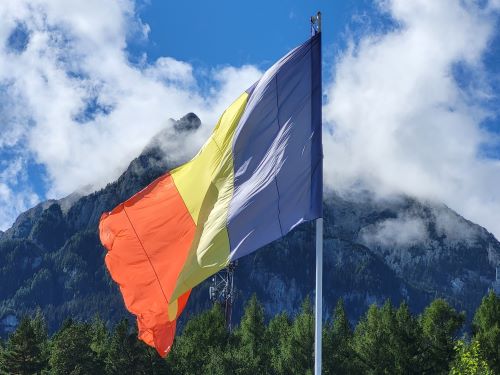
Language is a fascinating phenomenon. It’s a tool to communicate with your surroundings, understand them, and even influence them. As an entrepreneur, it’s crucial to thoroughly understand the environment, nature, and culture of a country to leverage it to your advantage. Language plays a significant role in this process. The origin of a country’s language and its usage can reveal a lot to the keen listener. Expressions, jokes, and even swear words expose the culture, customs, and unique national character.
Sometimes, the Dutch tend to lump all Central and Eastern European countries together, which is unfair. In my opinion, there are significant differences even between Belgium and the Netherlands, despite partially sharing the same language. Romania, therefore, cannot be compared in any way to neighboring countries such as Hungary or Bulgaria.
One significant difference lies in the origin of the language. What few people know is that the Romanian language is originally a Romance language, closely related to Italian and Spanish. Romania is a kind of Latin island in a sea of Slavic languages. This is reflected in the temperament of the population; Romanians can be seen as the South Italians of Eastern Europe.
To an outsider, Romanians may sometimes seem stern. But a good listener can discern subtleties of culture and mentality in their use of language. Take the sense of humor, for example: quite cynical, with a lot of self-deprecation and self-awareness. Personally, I appreciate this humor as well as the vivid and creative use of certain swear words.
Romania has a few beautiful expressions for which I can’t readily find a Dutch equivalent. For example, “een beer danst niet vrijwillig” (a bear doesn’t dance voluntarily), which means “sometimes you have no choice; you have to do what needs to be done”. This saying originates from how circus bears used to be trained. They were placed on a metal plate that was slowly heated until it became so hot that they would lift their legs and “dance”.
Another beautiful Romanian expression is “Ma unge pa suflet,” which is difficult to translate literally into Dutch. In English, it would be “lubricates my soul.” Anyone with passion, whether it’s a beautiful sunrise, a forest walk in the early morning, the sound of an eight-cylinder engine, or that cozy family Christmas dinner, I think understands what is meant by this, but the expression doesn’t exist in Dutch.
In many ways, Romania and the Netherlands are becoming more and more alike. Bucharest is a hypermodern city that rivals other major Western European cities. Romanian parents send their children to English lessons even during elementary school, resulting in many young people mastering the language. This is also because Romanian, as a Romance language, shares a lot of vocabulary with English. Developments are happening so rapidly that Romanian and Dutch Gen-Z, the young people in their twenties now, are almost indistinguishable in their ideas, desires, and dreams. So, we are growing closer and closer, hopefully while maintaining the national character that makes us all unique.
Looking for reliable software development services?
See how we can help.
- Anneke van der Putten
- Call: +31 (0)30 782 0111
- anneke@netrom.nl
- Ronald Bouwmeister
- Call: +31 (0)30 782 0117
- ronald@netrom.nl